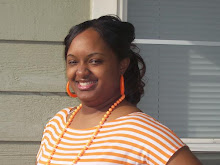Test, test, test! Every time you turn around teachers throughout the country are continuously giving their students test after test. Some test are too hard, some too easy, and some are just useless. After the test the teachers don't take time out to look at the results, instead they just teach a whole different concept. Is that the right thing to do? Of course not. Chapter four talks about how assessments should be used throughout the school year.
In the classroom teachers should be doing ongoing assessments, which are diverse assessments that should be giving throughout the school year. There is another type of assessment that should be used also and this assessment is the classroom assessments. These assessments are mostly overlooked by educators. These assessments are observations, day-to-day conversations with your students, and reviews of classroom test performance and classroom work. Due to no child left behind, their are state test that students must take and classroom assessments can sometimes be beneficial to the teachers, because they might give info about how students might perform on such state tests. Why do educators focus so much on these state tests? These tests are important because they help to see if teachers, students, and schools are meeting the standards given by the state. If such schools are not meeting the standards then schools can shut down, teachers can be fired, and resources can be lost. As an educator it is up to us not to focus all of the classroom time on state tests, but use other assessments as well.
By using personal assessments such as conversations, interviews, and observations help to motivate students, let them make connections between their lives and the content, and help guide them to use their backgrounds to critically read and evaluate academic texts. Classroom conversations are the most readily available for teachers to use to get to know about their students, but some teachers think that interviews are the best ways to learn about their students. After reading this chapter I found that keeping portfolios are the best way to assess students. These are good to use because they get the students involved by letting them put together their own work and look at the progress that they have accomplished. As an educator we should know that not one assessment can be used to see the information we need to know about our students' progress or our progress and that's why we should use a variety of assessments that lets us see the patterns we need to see in our students' performance.
Subscribe to:
Post Comments (Atom)

I think assessments are a vital component of our everyday responsibilities as an elementary teacher. It gives us insight as to how we are able to find more information about our students. Not only that it gives an ongoing idea on how to help our students progress.
ReplyDeleteI agree with you that it is very important to have that day to day conversation going on with our students. It is vital that we know our students interests, etc. so that we can better adapt our instruction to meet their needs and be more interesting, which in turn motivates them to WANT to learn. I too love the idea of portfolio assessments, because not only can the children see the progress they are making, or where they may need to work harder, but it is also a helpful record for us as their teacher. And it can be a go-to when a principal or parent wants to see their children's progress.
ReplyDelete